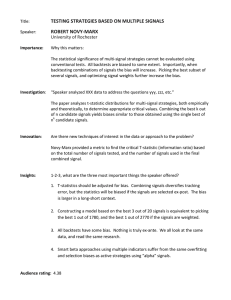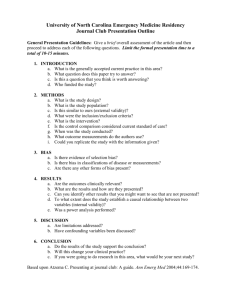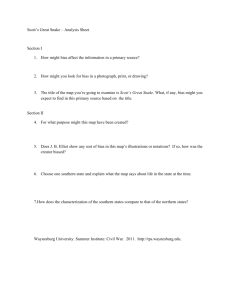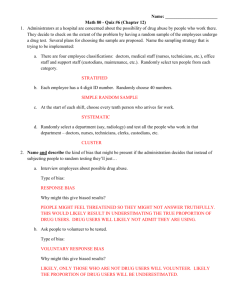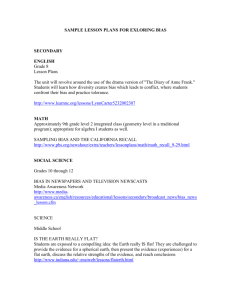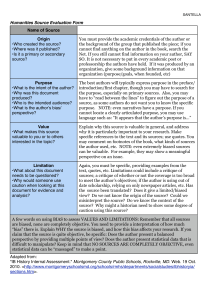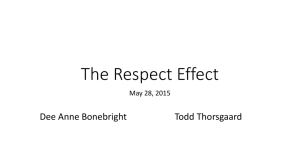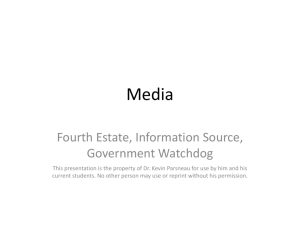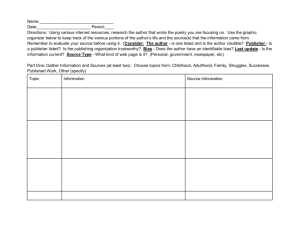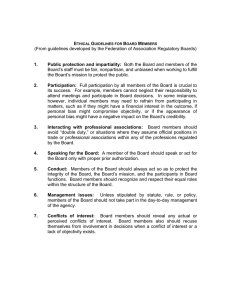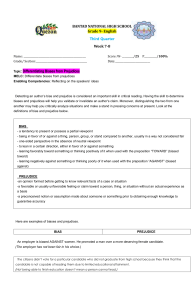Media Bias
advertisement
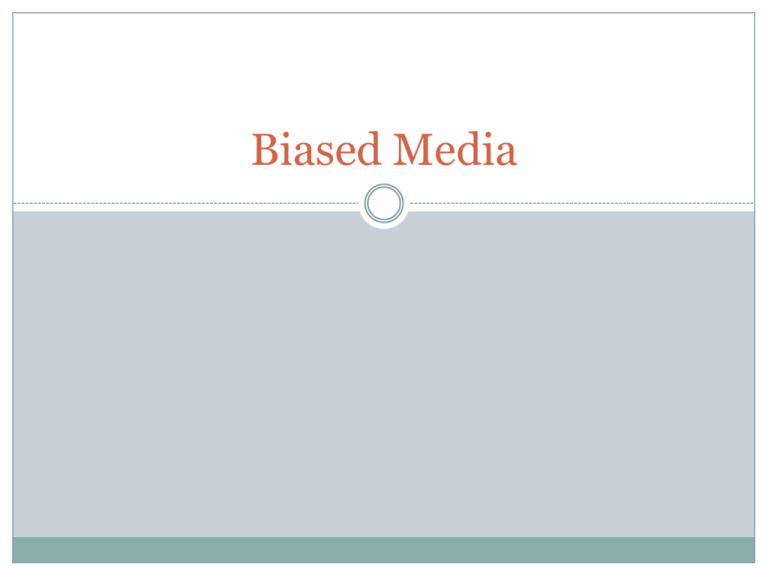
Biased Media What is Media? Although we usually use the word media to describe the mass media, it is actually just the plural form of the world "medium". A medium is anything that can be used to store or pass on information. Many types of media are used only for one-to-one communication (e.g. - phones, letters, faxes, emails, etc.). Mass Media Mass media refers to things that are used to transfer information or ideas to a large group of people all at once. Examples include: Print media (books, newspapers, magazines, posters Broadcast media (TV, radio) Internet media (web pages, message boards, blogs, podcasts, social networking sites) Other mass media (films, computer games) Being Careful With Mass Media The mass media has an influence on our lives and on our thinking. It is like food for our mind and just like we can control the types of foods we eat, we can also control (to some extant) the ideas going into our brains. We can do this in two ways: Be selective about what we let in. Just like we can avoid eating too much junk food, we can avoid watching too much "junk" on TV. Critically evaluate what does go into our minds. We can learn to think for ourselves and not take everything we hear or see in the mass media as being automatically correct. Newseum http://www.newseum.org/digital- classroom/video/bias/default.aspx Being Aware of Media Bias Consider the following: 1. We prefer stories - Much of what we see on TV and in films is stories. However, the types of stories chosen often reflect the unscientific beliefs in our culture (such as aliens, witches, or ghosts). This only reinforces the idea that these types of things might actually be true. 2. Mental shortcuts - Whenever we take one small example and apply it on a large scale, we are making a generalization. Generalizations can often be dangerous and unfortunately, the mass media often helps to reinforce common generalizations and stereotypes (e.g. – race, religion, sexuality, nationality; etc.) Being Aware of Media Bias cont.. We seek to confirm what we already believe - This mistake is made in the mass media most of all. In fact, there's a word that is used whenever we are one-sided in our presentation of the facts -- bias. Most of what we see in the mass media has some sort of bias to it (ie. it supports one particular view over another). If we are unaware of this, we might end up accepting other people's opinions, thinking that they are facts. The Daily Show http://www.thedailyshow.com/watch/thu-january- 24-2013/grill-hill---benghazi-soundbites?xrs=share_copy Fact vs. Opinion A fact is something that can be shown to be true either by direct observation or by referring to a reliable source (e.g. - there are fifteen desks in this classroom). An opinion, on the other hand, is one person's personal feeling about something and therefore cannot be shown to be either true or false (e.g. - the desk by the window is the best seat in the room). When we are looking only at facts, we are being unbiased (or objective). If we are considering opinions, we are being biased (or subjective). It is impossible to be objective and unbiased all the time. Therefore, we should not be surprised to see bias in the mass media. The important thing is to realize that the biases are there so that we can either balance them in our own mind or balance them by accessing many different sources, all with different biases.
